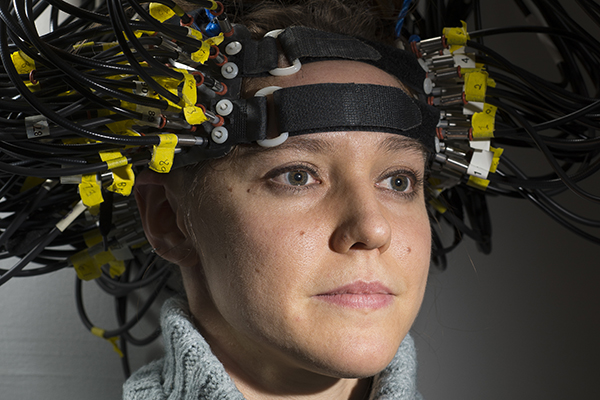Up close with the WUSTL-affiliated Arch Grants winners
Get an up close look at the eight WUSTL-affiliated 2014 Arch Grant winners.
Medical School WUSTLnomics forum May 27
Faculty and staff at Washington University School of Medicine are invited to a WUSTLnomics forum and brown-bag lunch from 11 a.m. to 12:30 p.m. Tuesday, May 27. The forum, the focus of which will be the university’s efficiency efforts, will be in Moore Auditorium, on the first floor of the North Building.
Washington People: Brian Nussenbaum
Brian Nussenbaum, MD, the Christy J. and Richard S. Hawes III Professor of Otolaryngology, is a surgeon dedicated to caring for patients with life-threatening head and neck cancers. Passions for teaching, research and patient safety have steered his career.
Our Washington: serving students
WUSTL faculty and staff are urged to donate to Our Washington, Together We Make a Difference. Among other things, the campaign helps fund scholarships, support academic initiatives and build new facilities across the Danforth and Medical campuses. Longtime donor Michael Kass, MD, established a scholarship fund to ease the financial burden of medical school.
Optical brain scanner goes where other brain scanners can’t
Scientists have advanced a brain-scanning technology that tracks what the brain is doing by shining dozens of tiny LED lights on the head. The technique compares favorably to other approaches but avoids the radiation exposure and bulky magnets the others require, according to new research at the School of Medicine.
MRI for prostate biopsies increases odds of finding aggressive tumors
Prostate biopsies performed using magnetic resonance imaging are more likely to find aggressive tumors than those that rely on ultrasound, suggests a new study led by Gerald Andriole, MD, chief of urology at the School of Medicine.
Study finds limited benefit for vitamin D in asthma treatment
Adding vitamin D to asthma treatment to improve breathing only appears to benefit patients who achieve sufficient levels of the supplement in the blood. Overall, the ability to control asthma did not differ between a study group that received vitamin D supplements and a group that received placebo. Mario Castro, MD, (left) led the study.
Painkillers may decrease susceptibility to recurring urinary infections
Women plagued by repeated urinary tract infections may be able to prevent them with help from over-the-counter painkillers, new research in mice shows. School of Medicine scientists found that inhibiting an immune protein that causes inflammation eliminated recurrent urinary tract infections in mice.
Winners of Bear Cub grants announced
Washington University’s Bear Cub program is funding four innovative projects that have commercial potential. Pictured is William G. Hawkins, MD, who is developing a new treatment for pancreatic cancer.
Medical School brown-bag lunch WUSTLnomics forum May 27
All School of Medicine faculty and staff are invited to a brown-bag lunch WUSTLnomics forum on the university’s efficiency efforts. It will be held from 11 a.m.-12:30 p.m. Tuesday, May 27, in Moore Auditorium, on the North Building’s first floor.
View More Stories

